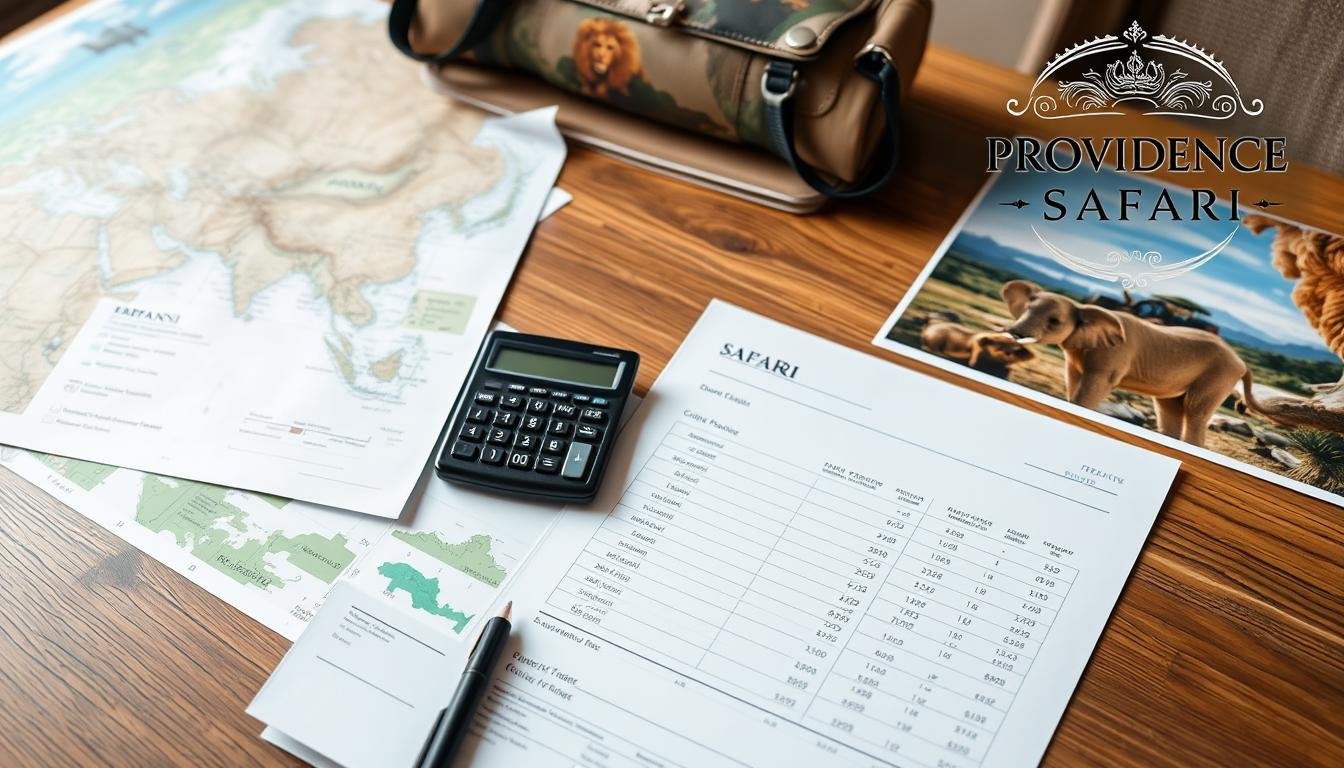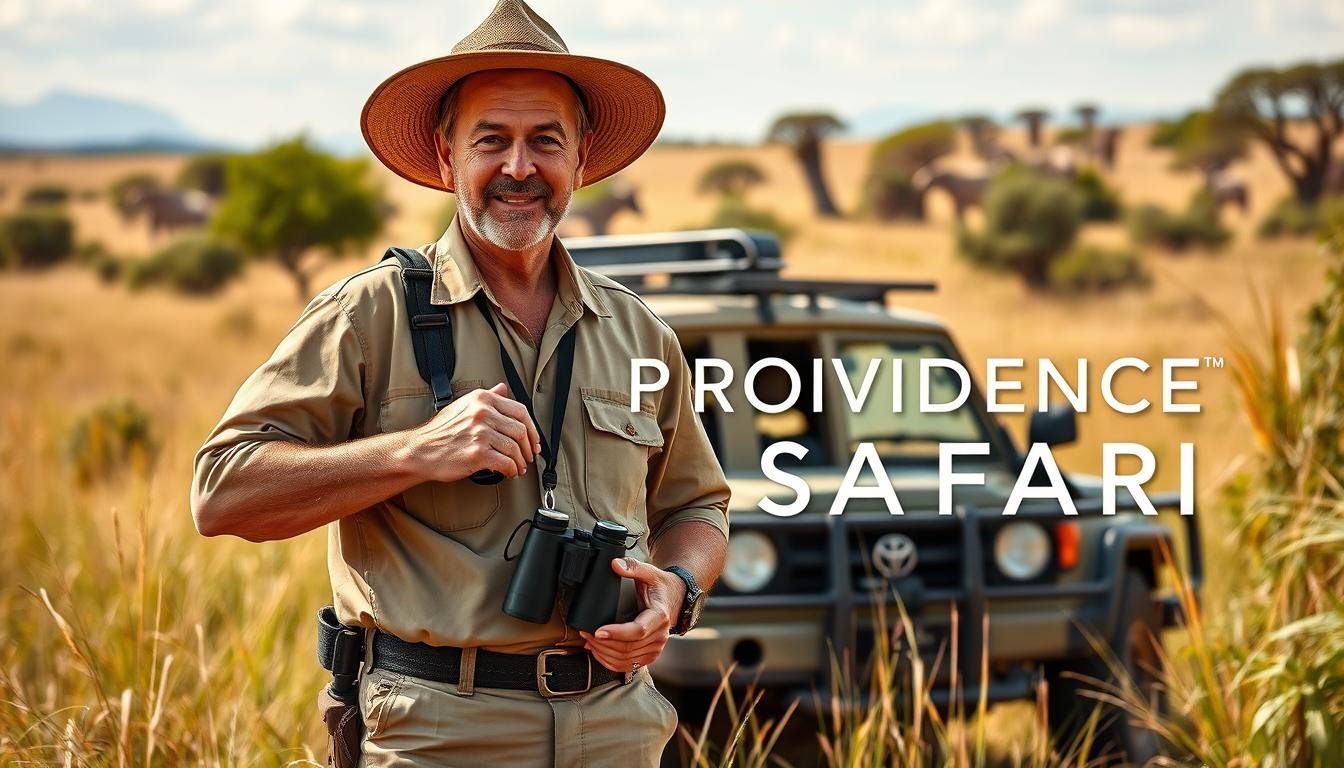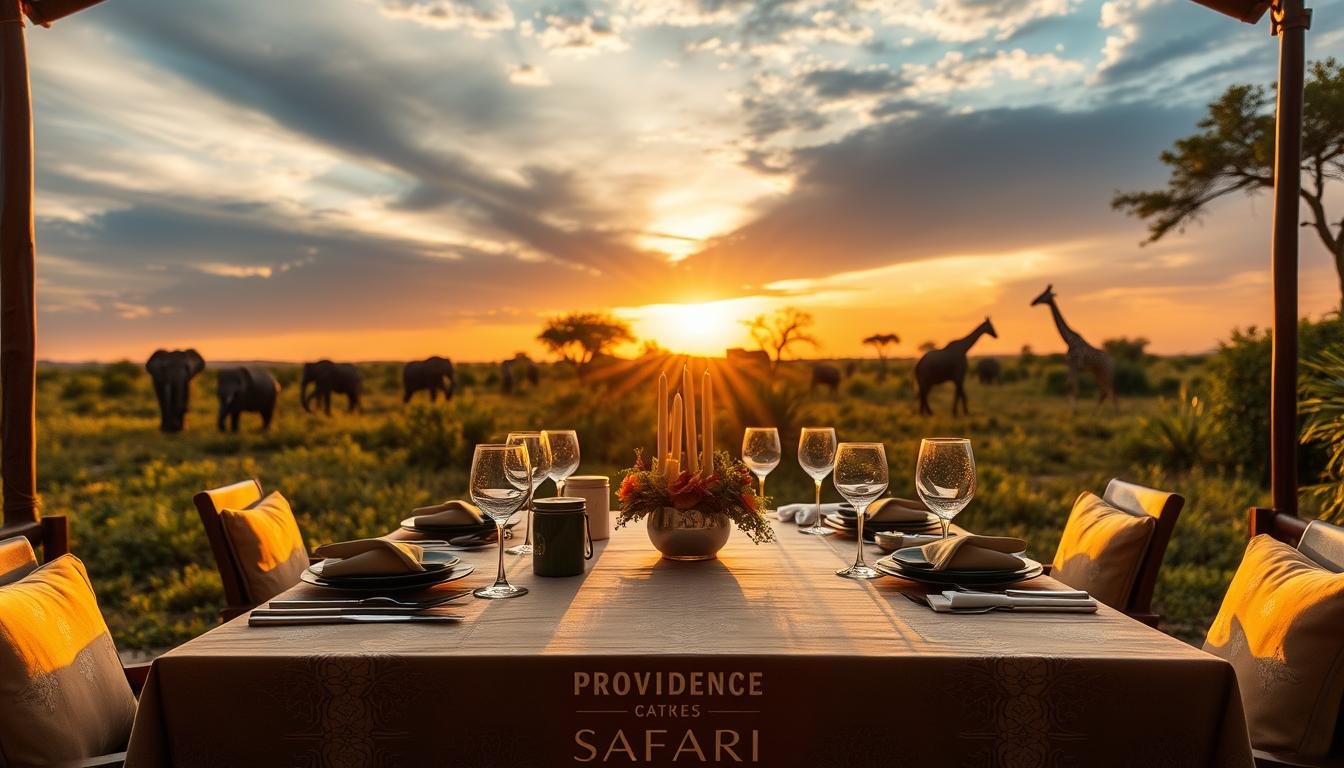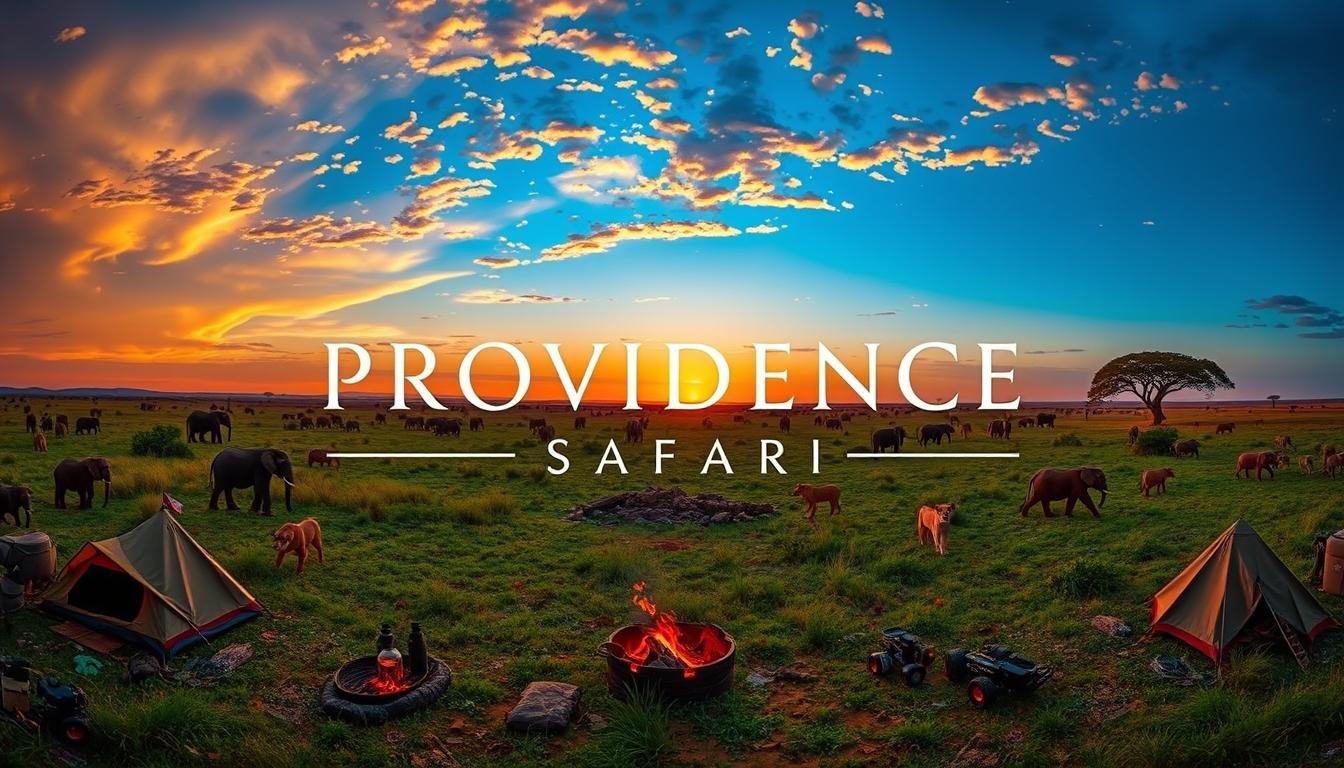Safari cost: Planning an African safari is exciting, but knowing the costs is key. Prices vary a lot, from budget-friendly to luxurious. This guide will cover what affects safari prices, like the type of trip, destination, and season.
The cost of a safari in Africa can be from a few hundred to tens of thousands of dollars. Understanding safari travel costs helps us plan and budget better. This way, we can enjoy our adventure without spending too much.
Key Takeaways
- Safari costs can vary significantly depending on the type of experience, destination, and time of year.
- Factors like accommodation, transportation, and guide fees can greatly impact the overall cost of a safari.
- Researching and planning ahead can help us find affordable safari options without compromising on the quality of our experience.
- Considering the peak and off-peak seasons, as well as group sizes, can help us tailor our safari budget to our needs.
- Exploring less touristy destinations and alternative accommodation options can provide cost-effective safari experiences.
Understanding Safari Costs: An Overview
Planning a safari adventure means knowing about safari prices. It’s important to understand the differences between budget and luxury options. Our guide will help you understand safari pricing easily.
Factors Influencing Safari Prices
Safari costs change based on many things. These include the destination, time of year, accommodation type, and service level. Activities, transportation, and guide expertise also play a big role in pricing.
Budget vs. Luxury Safari Experiences
There are budget and luxury safari options. Budget safaris offer a simple yet real experience. Luxury safaris provide a high-end, all-inclusive trip. Prices range from a few hundred to several thousand dollars per person.
Hidden Costs of Safari Trips
There are hidden costs in safari trips. These include park entry fees, permits, and conservation levies. Optional activities, tips, and personal expenses also add up. Knowing these costs helps avoid financial surprises.
| Safari Expense | Budget Safari | Luxury Safari |
|---|---|---|
| Accommodation | Basic lodges or camping | Luxury lodges and tented camps |
| Meals | Shared meals, limited options | Gourmet dining experiences |
| Activities | Essential game drives | Diverse activities and excursions |
| Transportation | Shared vehicles or self-drive | Private transfers and charter flights |
| Gratuities | Minimal tips | Generous tips expected |
Knowing about safari tour pricing, budget and luxury safari expenses, and hidden costs of safari trips helps plan a safari. This way, you can choose an adventure that fits your budget and preferences.
Types of Safaris and Their Price Ranges
Planning a safari adventure means knowing the different types and their costs. Let’s look at the main safari options and what they cost.
Game Drives and Self-Drive Safaris
Guided game drives are a favorite, where we ride in a special vehicle with a wildlife expert. Prices range from $50 to $200 per person, based on location, length, and exclusivity. Self-drive safaris are cheaper and more independent, with 4×4 rentals starting at $50 a day.
Walking Safaris: What’s Included?
Walking safaris let us explore on foot for a deeper wildlife experience. They include a guide and ranger, costing $100 to $300 per person per day. Prices vary by duration, group size, and extra activities like wildlife viewing fees or photographic safari costs.
Family Safaris vs. Solo Adventures
The number in our group affects safari prices. Family safaris offer discounts for kids, costing $200 to $500 per person per day. Solo travelers pay more, but get more flexibility and personal experiences.
Knowing the different safari types and their costs helps us choose wisely. We can pick what fits our budget and preferences.
Seasonality and Its Impact on Costs
Planning a safari in Tanzania or Kenya means thinking about seasonality and costs. The safari price changes a lot based on when you go.
Peak vs. Off-Peak Pricing
The best time for safaris in East Africa is from June to September and December to February. During these times, prices for places to stay, getting around, and activities go up. But, the cheaper months are March to May and October to November. These months offer lower tanzania safari costs and kenya safari rates.
Weather Considerations for Budgeting
The weather in Tanzania and Kenya affects safari costs too. The dry season, which is peak time, is great for seeing animals but costs more. The wet season might have muddy roads and less clear views. Yet, it can be cheaper for tanzania safari costs and kenya safari rates.
How Holidays Affect Safari Costs
Holidays and busy times can make safaris more expensive. Big holidays like Christmas and New Year’s are very popular. This means prices go up. To save money, try to avoid these times.
Knowing how season, weather, and holidays affect prices helps plan your budget. This way, you can enjoy your safari without spending too much.
Choosing the Right Destination for Budgeting
When planning an african safari, the destination you choose is key. Kenya and Tanzania are famous for their wildlife and beauty but are pricey. Yet, other places offer budget safari packages without breaking the bank.
Popular Safari Destinations and Their Prices
Safari costs vary by destination. Kenya and Tanzania’s packages range from $3,000 to $8,000 per person. Meanwhile, Botswana or Namibia might cost $5,000 to $10,000. Prices differ based on where you stay, how you get there, and what you do.
Less Touristy Locations for Affordable Safaris
- Zambia: Its untouched wilderness makes it cheaper than Kenya and Tanzania.
- Malawi: This country is less visited but has beautiful parks and wildlife at lower prices.
- Zimbabwe: Despite past issues, it’s now a more affordable safari spot.
National Parks vs. Private Reserves
Choosing between national parks and private reserves affects your budget. National parks, like the Serengeti or Kruger, are cheaper. They’re run by the government. Private reserves offer luxury but cost more.
| Destination | Average Safari Cost (per person) |
|---|---|
| Kenya | $3,000 – $8,000 |
| Tanzania | $3,000 – $8,000 |
| Botswana | $5,000 – $10,000 |
| Namibia | $5,000 – $10,000 |
| Zambia | $2,000 – $6,000 |
| Malawi | $1,500 – $4,000 |
| Zimbabwe | $2,000 – $6,000 |
By looking at these factors and choosing less-visited spots, you can find an african safari prices that suits your budget. This way, you get an amazing wildlife adventure.
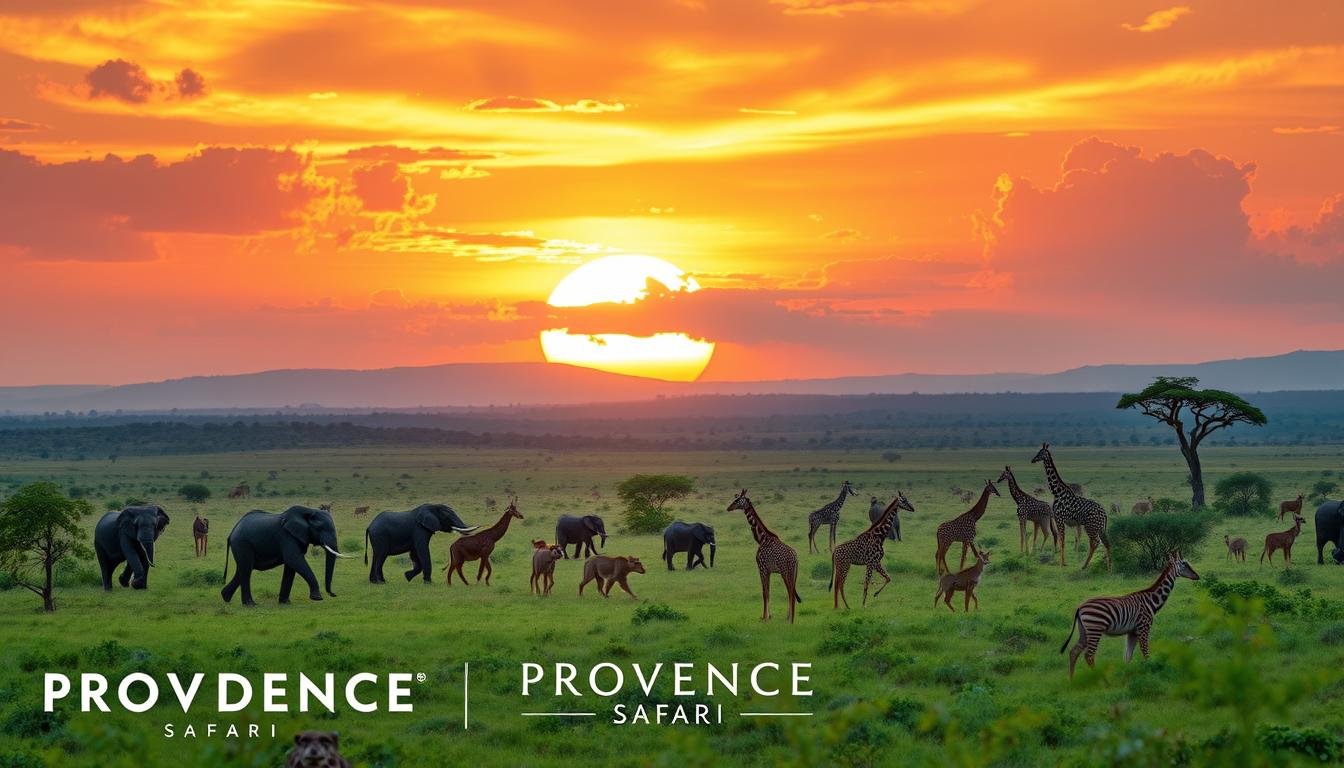
Accommodation Options and Their Costs
Choosing where to stay on a safari can greatly affect the trip’s cost. There are many options, from fancy lodges to simple camping. Let’s look at what each choice costs.
Luxury Lodges and Tented Camps
Luxury lodges and tented camps offer a top-notch safari experience. They have amazing views, great service, and lots of amenities. But, they are pricey, with prices from $500 to $1,500 per night.
Mid-Range Hotels and Budget Stays
For a mix of comfort and savings, mid-range hotels and budget stays are good. They have clean rooms, basic amenities, and are close to safari spots. Prices vary, but you can find deals from $100 to $300 a night.
Camping Safaris: What to Expect
Camping safaris are for the bold traveler. You sleep in tents under the stars with basic comforts. Costs are lower than luxury lodges, but still include guide fees and park fees. Prices range from $50 to $200 per night, depending on what you want.
When picking your stay, think about what matters most to you. Know the costs of each option to plan a safari that fits your budget and preferences.
| Accommodation Type | Average Nightly Rate (per person) |
|---|---|
| Luxury Lodges and Tented Camps | $500 – $1,500+ |
| Mid-Range Hotels and Budget Stays | $100 – $300 |
| Camping Safaris | $50 – $200 |
Safari Guide Fees and Costs
Planning a safari means thinking about guide costs. Guides are key to a great wildlife experience. They share their knowledge and make the trip better. Knowing about guide fees helps us plan our budget.
What to Know About Guide Services
Safari guides are experts in local wildlife and safety. They lead game drives and walking safaris. They also share animal facts and help with photos.
They ensure our safety and comfort. Guides also share cultural and historical insights.
Choosing a good guide is crucial for a great safari. Research to find a reputable provider.
Group vs. Private Guide Costs
Guide costs vary between group and private tours. Group tours are cheaper, with fees from $20 to $50 per person per day. Private guides cost more, from $100 to $300 per day.
Deciding between group and private depends on budget and preferences. Consider your group size and desired exclusivity.
| Guide Service | Cost Range (per person per day) |
|---|---|
| Group Safari Guide | $20 – $50 |
| Private Safari Guide | $100 – $300+ |
Knowing about guide options helps us choose within our budget. This way, we can enjoy our safari without financial stress.
Transportation Costs During Safaris
Planning a safari means thinking about transportation costs. These can be a big part of your budget. You have to choose between flying and driving, and what vehicle to rent. Let’s look at the details to help you decide.
In-Country Flights vs. Road Travel
Flying within the safari area is quick but pricey. Flights in places like Tanzania can cost $100 to $300 per person. Driving is cheaper for long trips but takes more time. You also need to think about possible delays.
Vehicle Rental Prices and Options
Renting a car for a self-drive safari varies a lot. In Tanzania, basic 4x4s cost $50 to $200 a day. Luxury vehicles or safari-specific cars can be $300 or more. Remember to add fuel, insurance, and extra fees to your budget.
Choosing between flying and driving, and what vehicle to rent, depends on your budget and preferences. By considering these factors, you can pick the best option for your trip.
Meals and Dining Costs on Safari
Planning a safari means thinking about meal costs. Whether you choose a luxury safari or a budget-friendly package, knowing about dining options is key. It helps you stay within your budget.
Dining Options in Lodges and Camps
Safaris offer different dining experiences. You might enjoy fancy meals in luxury lodges or simpler food in budget camps. Luxury lodges serve gourmet meals, adding to the luxury safari expenses.
Budget safari packages have more basic meals. These might include buffets or simple dishes made by camp staff. They’re cheaper but still offer a good taste of local culture.
How Meal Plans Affect Our Budget
Many safari packages come with meal plans. These plans can make budgeting easier. They might include all meals or let you choose some. Knowing what’s included helps you plan your safari dining costs better.
- All-inclusive meal plans: These cover all meals, snacks, and drinks. They make dining easy and predictable.
- Partial meal plans: These plans might only include breakfast and dinner. You pay extra for lunch and snacks.
- A la carte dining: Some safaris let you pick what you eat and pay for it. This is good for those with special diets or preferences.
Thinking about dining options and meal plans helps you manage your safari budget. It ensures your meals fit your travel style and budget.
Extras: Activities and Experiences
When planning a safari, think about the costs of extra activities and experiences. These “extras” can change your overall safari budget. But they can also make your journey unforgettable.
Cultural Experiences: What They Cost
Exploring local cultures and traditions is a great part of any safari. Activities like gorilla trekking can vary in price. For example, a gorilla trekking trip in Uganda or Rwanda might cost $500 to $1,500 per person.
Add-On Activities and Adventures
- Photographic safaris: Specialized photography-focused game drives can cost an additional $100 to $500 per person.
- Hot air balloon rides: The chance to see the savanna from above can add $300 to $600 to your costs.
- Private boat cruises: Cruising rivers or lakes to see wildlife can cost $50 to $200 per person.
- Walking safaris: Bush walks with guides can cost $50 to $150 per person.
These extra activities can make your safari better. But remember to include them in your budget to avoid surprises.
Insurance Costs for Safari Trips
Planning a safari trip is exciting and life-changing. But, it’s key to think about risks and get the right insurance. The cost of travel insurance for a safari varies a lot. It depends on the coverage you pick and your trip’s details.
Types of Insurance We Should Consider
For safaris, you might want to look at several insurance types. These include:
- Trip Cancellation and Interruption Insurance: This coverage helps if you have to cancel or shorten your trip. Reasons could be illness, injury, or travel delays.
- Medical and Emergency Evacuation Insurance: Safaris are in remote areas. Medical care and evacuation can be expensive. This insurance covers medical treatment and getting you to a hospital or home.
- Adventure Sports Insurance: Safaris include activities like walking safaris or hot air balloon rides. This insurance protects you if you get hurt while doing these activities.
How to Choose the Right Coverage
Choosing the right insurance for your safari involves several factors. Consider these:
- Destination: The country or region you visit affects your insurance needs and cost.
- Length of Trip: Longer safaris need more comprehensive insurance.
- Planned Activities: The adventure sports and activities you plan impact your coverage needs.
- Existing Health Insurance: Check if your current health insurance covers international travel.
By thinking about your insurance needs and picking the right coverage, you protect yourself and your safari investment.
Currency Exchange and Payment Methods
When you go on a safari in places like Kenya or Tanzania, knowing about money exchange and payment is key. Understanding the local money scene helps make your safari trip smooth and worry-free.
Handling Local Currency on Safari
In most safari spots, using the local money is best. It’s smart to exchange some of your money into the local currency, like Kenyan or Tanzanian Shillings, before you go. This makes it easy to pay for things like kenya safari rates or tanzania safari costs.
Some big places, like fancy lodges and hotels, might take major credit cards. But having local money ready helps with small buys and unexpected costs.
Tips for Using Credit Cards Abroad
- Tell your credit card company you’re traveling to avoid service stops.
- Check if your card has foreign fees or bad exchange rates, as these can add up.
- Carry different cards and local money for more payment options on your safari.
- Be careful with your cards in public to avoid security issues.
Knowing about money and payments for your safari trip helps you prepare better. This way, you can enjoy your time, whether you’re looking at kenya safari rates or tanzania safari costs.
| Payment Method | Advantages | Disadvantages |
|---|---|---|
| Local Currency |
|
|
| Credit/Debit Cards |
|
|
Discounts and Deals for Safari Packages
Planning a budget-friendly safari adventure is easier with the right discounts and deals. Look for last-minute offers and early bird savings. These can help you save money and have a great time without spending too much.
Finding Last-Minute Offers
The safari travel world is always changing. Tour operators often have last-minute deals to fill spots. Being flexible with your travel dates and destinations can lead to big savings on budget safari packages. But, make sure these offers are real and match what you want from your safari.
Early Bird Discounts to Plan For
Booking early can save you money on safari tour pricing. Many operators give discounts for early bookings. This way, you save money and get to plan your trip exactly how you want it.
| Discount Type | Potential Savings | Booking Timeline |
|---|---|---|
| Last-Minute Offers | Up to 30% off | 4-8 weeks before travel |
| Early Bird Discounts | Up to 15% off | 6-12 months before travel |
By staying informed and flexible, you can find great deals for your safari. Whether it’s a last-minute deal or an early bird booking, exploring all options is key. This way, you can have an amazing adventure that fits your budget.
Planning Our Safari Budget: A Checklist
Planning our next safari adventure means making a detailed budget. We’ll go through a checklist to make sure we cover all costs. We also want to have some extra money for unexpected expenses.
Essential Expenses to Include
- Safari package or tour cost, including land and air transportation
- Accommodations, ranging from luxury lodges to budget-friendly options
- Meals and dining expenses, whether provided by the safari operator or paid for separately
- Park entrance fees and permits for the specific destinations we plan to visit
- Safari activity costs, such as game drives, walking safaris, and cultural experiences
- Gratuities for safari guides, drivers, and support staff
- Travel insurance to protect against unexpected events or emergencies
How to Adjust Budgets for Unforeseen Costs
Safari travel can have unexpected expenses. To prepare for these, we should add 10-15% to our total budget. This extra money helps us cover:
- Currency fluctuations that can change the cost of our safari
- Unexpected activity or excursion fees that might come up during our trip
- Potential changes in accommodation or transportation costs due to weather or other factors
- Additional medical or emergency expenses that could happen while on safari
By thinking about all the costs and adding a buffer for surprises, we can make a budget for a memorable safari. This way, we can enjoy our trip without worrying about money.
The Importance of Research in Budgeting
Planning a safari trip needs careful research to find the best deals and stay on budget. We must understand safari tour pricing and wildlife viewing fees. Knowing these details helps us prepare for the costs of our adventure.
How to Gather Accurate Cost Information
To make a good safari budget, we need to gather detailed cost info from trusted sources. We should talk to tour operators, lodges, and guides for accurate prices. Also, looking at industry reports and average safari costs helps set realistic budgets.
Leveraging Online Resources and Reviews
- Travel forums and blogs are great for connecting with others who’ve gone on safaris. They share cost tips and experiences.
- Check online review sites to see how different safari providers and places compare. This helps avoid unexpected costs.
- Use safari planning websites with cost calculators and budget tools. They help estimate our expenses.
Spending time on research helps us understand the financial side of a safari trip. With this knowledge, we can make a realistic budget. This way, our safari will be unforgettable and affordable.
Creating a Memorable Safari Experience on a Budget
Planning our safari adventure means focusing on what’s most important within our budget. We aim to make our trip unforgettable without spending too much. This way, we get the most out of our safari experience.
Prioritizing Activities for Our Budget
Choosing the right safari activities is key. We should decide which ones are must-haves and which can be skipped or done more cheaply. For example, if taking amazing wildlife photos is our goal, we might choose a group game drive over a private one to save money.
Enhancing Our Safari without Overspending
There are ways to make our safari better without spending a lot. We could visit local villages or take a cooking class to learn about the culture. These experiences can enrich our trip without costing a lot.
Also, exploring less crowded national parks or private reserves can be cheaper. They often offer unique wildlife views that are just as good as the more famous spots.

